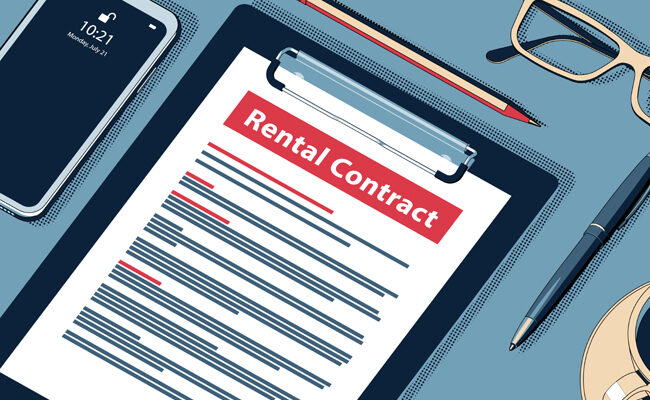
When selling a rental property with tenants, landlords encounter several difficulties. This is because the strategy necessitates a thorough understanding of several critical facets of the real estate laws. Additionally, locating a buyer ready to take on a tenant-occupied property may be challenging.
Here’s how to sell a house with an existing tenant, whether you’re doing it to comply with new government laws or to free up some cash.
1. Notify Renters By Letter Of The Property’s Sale
You should send and notify tenant of sale of property letter. Bear in mind that the renter possesses sufficient influence to stall the procedure, and hence you must act with the utmost civility. Typically, a letter explaining the problem and resolving local regulations is sent to the renter. The critical point is to maintain a positive relationship with the tenant and avoid inflicting undue stress.
2. If Your Tenant Rents For Only A Month At A Time
Leases on a month-to-month basis are usually the common, adaptable type of renting arrangement. Depending on your country and locality, you may only need to tell your tenants 30 to 60 days before the day you require them to give back the keys. Ascertain that your tenant is aware of the expiration date of the lease agreement.
You’re not required to tell your tenant of the transaction, as landlords regularly discontinue month-to-month contracts without explanation or cause. On the other hand, any required housekeeping activities will almost go more quickly if you keep your renter informed.
3. If A Fixed-term Lease Currently Binds Your Tenant
Longer leases may add delay to the means of marketing a tenant-occupied home. Unless your contract has an immediate termination condition, your renter has the power to remain on the property grounds until the contract expires.This is as long as rent is paid and the tenant doesn’t violate the lease arrangement.

If a leaseholder adheres to the regulations and pays on time, they don’t forfeit their power to call your place their home simply because you wish to sell it. It may be prudent to hold off on selling your tenant-occupied property until the contract has expired.
4. Allow The Tenant To Have The Property Inspected At Their Convenience
Notify the agency responsible for promoting the property that the renter requires a minimum of 24 hours’ notice for showings. Notify the agent if the tenant’s schedule makes it impossible for the property to be presented during specified hours. The listing agent will ensure that any prospective buyers or agents interested in viewing the property adhere to their schedule.
While you may always contact the tenant to request a shorter notice to display the property, the lease mandates the required information for admittance until a new arrangement is reached with the renter.
5. Consult Your Local Legislation
Researching applicable local legislation is a critical stage in the process of renting a home to tenants. Regulations and recommendations differ per state, and it is essential to understand what they mean. More significantly, being familiar with the rules in your area means you are aware of both your obligations and renters’ rights when a house is for sale.
6. All Leases Should Have An Early Termination Clause
Some leases include a security net for landowners, known as an urgent termination clause, which can be applied in various situations. Even tenants in excellent standing may find themselves unable to complete their term under certain circumstances. Certain leases include an early termination clause to account for a range of circumstances.
According to these restrictions, the lease will often expire 30 days, 60 days, or 90 days after the property is sold. Anything can serve as a ‘trigger’ for terminating the lease, as long as it is sensible, and both participants consent in writing.
7. Negotiate With Your Renter
Inquire whether your tenant is interested in purchasing the home if they are genuinely unable to vacate. They could be your ideal buyer if they are already acquainted with and appreciative of the property.
If they are unable to obtain a mortgage, they should investigate seller financing. You are both the seller and the banker in this arrangement, allowing your tenant to pay you. Although this isn’t always the ideal course of action for sellers, it may be worthwhile.This is true if it saves you the time and effort associated with anticipating the minimum lease term to expire, and navigating a lengthy selling procedure.
8. Assist The Tenant In Locating A New Residence, If Necessary
Notify the tenant if you possess multiple investment properties. If you’re not an investor, you might send the tenant to a local listing service, or inform them that you would inquire among your acquaintances about available properties.
9. Verify If The Tenant Is Up To Date On Their Rent
Certain landlords are more lenient than others when it comes to renting arrears. If the tenant continues to owe rent, it is time to take action. A tenant who is in arrears is quitechallenging. One possibility is to pardon the tenant’s delinquency in exchange for the tenant’s departure. If the tenant is unable to pay the rent, other options include court action and eviction.
10. Sell Your Property To A Prospective Investor
While most first-time buyers are uninterested in anticipating a lease agreement, you should have a better chance of marketing to a different investor. You will, however, be working with a more modest market, and the new owner or organization must honor the tenant’s existing lease.
11. Lease Agreements Must Be Executed
Once you’ve located a buyer willing to take on your long-term tenant, you’ll need to convene a meeting with both the renter and the buyer to finalize the lease. The old lease will remain valid to ensure the tenant’s continued occupancy of the property, but landlord obligations will now be transferred to the new owner rather than to you.
Additionally, you should obtain an estoppel agreement. This contract ensures all legal loose ends are correctly tied and transferred to benefit both you, the purchaser, and the tenant. Finally, you must transmit the security deposit to the new owner, along with any earned interest.
Takeaway
While financial incentives typically alleviate the problem, sellers shouldn’t overlook the benefits of being mindful of the renter, and understanding that the property is still the tenant’s home while it is on the market. A dissatisfied renter might jeopardize a transaction, mainly if they refuse to allow showings or stop to clean.
Leave a Reply